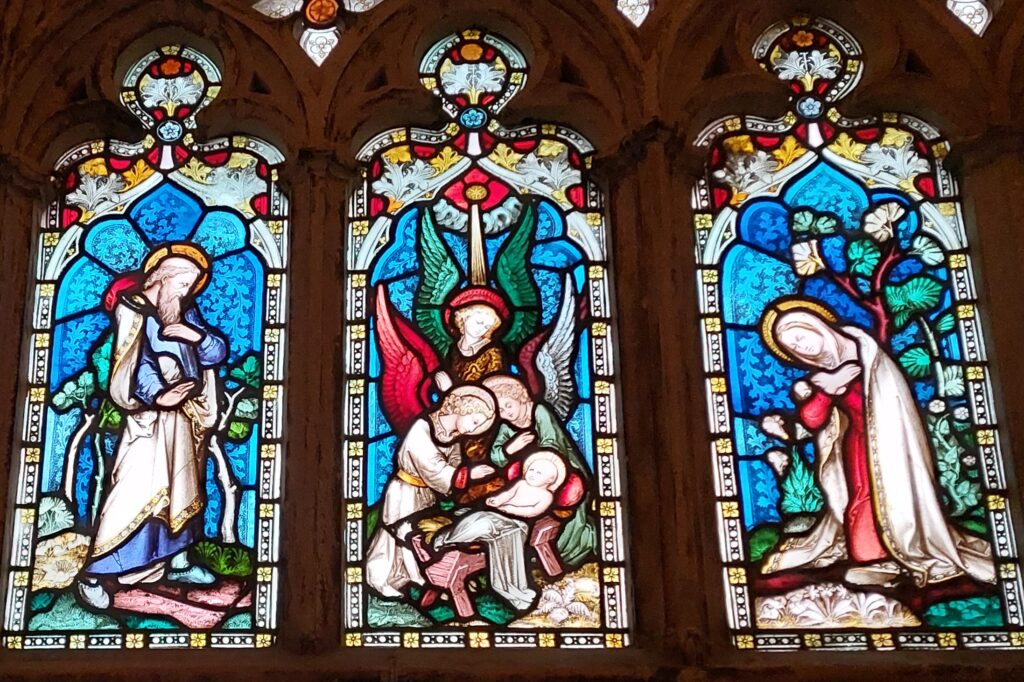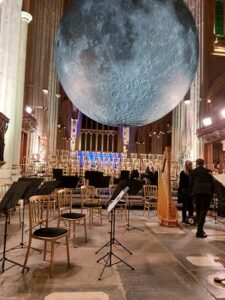For obvious reasons most of my musical activity in 2021 was concentrated in the latter part of the year, and in the autumn I became almost ridiculously active (at one point I had 4 rehearsals on successive days in 4 different towns).
A brief summary of some of this:
- 2 Cathedral visits with visiting choirs (Portsmouth for a week in August, and a Bristol weekend in October)
- 1 concert with Bristol Choral Society (Bristol Cathedral again)
- 3 performances with Gloucester Choral Society (one outdoors in the cloister garth, two concerts in the Cathedral)
- 3 carol services, 2 funerals, a wedding, and eucharists/evensongs in Christ Church and Bath Abbey
- recording more anthems at home with Christ Church choir for streaming online
Autumn also saw the return of a full Mozartfest programme and we’d also gone to some Bath Festival concerts in May; otherwise I went to few performances given by others, although they included one by a visiting choir which I’d really rather forget. No opera or music-related trips to London or Cardiff.
In September I joined the newly formed Bath Abbey Chamber Choir, and have sung several services with them. There are some exciting plans here for 2022.
A less welcome autumn development was losing a number of people I’d sung with or for on many occasions: Joanna, Jane, Sharon and Malcolm (and add to them Doreen who died earlier in the year). All of them long-term supporters of music in their respective situations.
Since the pandemic began, I have also reflected on the experience of reaching ’round number’ anniversaries with various choirs. In one case this has caused apparent resentment from at least one person who has not been in the choir as long as I (although there is nothing I can do to change the date I became part of the choir); in another I seem almost as far away from belonging as when I joined. The result is that I feel pushed to the margins and left to sort the problem out on my own. These considerations in turn influence where I choose to do more of my singing, and partly account for the prominence of the Abbey chamber choir (where we are all newcomers to the choir, if not to the Abbey) and Gloucester Choral Society (where I’m always going to be something of an outsider because of living at a distance, so I feel no need to strive for acceptance).
So one aim for 2022 is to find a sympathetic ear for some of what I’ve described in the previous paragraph. Maybe I have over-reacted – I just don’t know. On a more positive note I have the likely prospect of one, possibly two, overseas choir tours, Cathedral visits, singing full-length concerts with orchestra and attending concerts and opera again.


